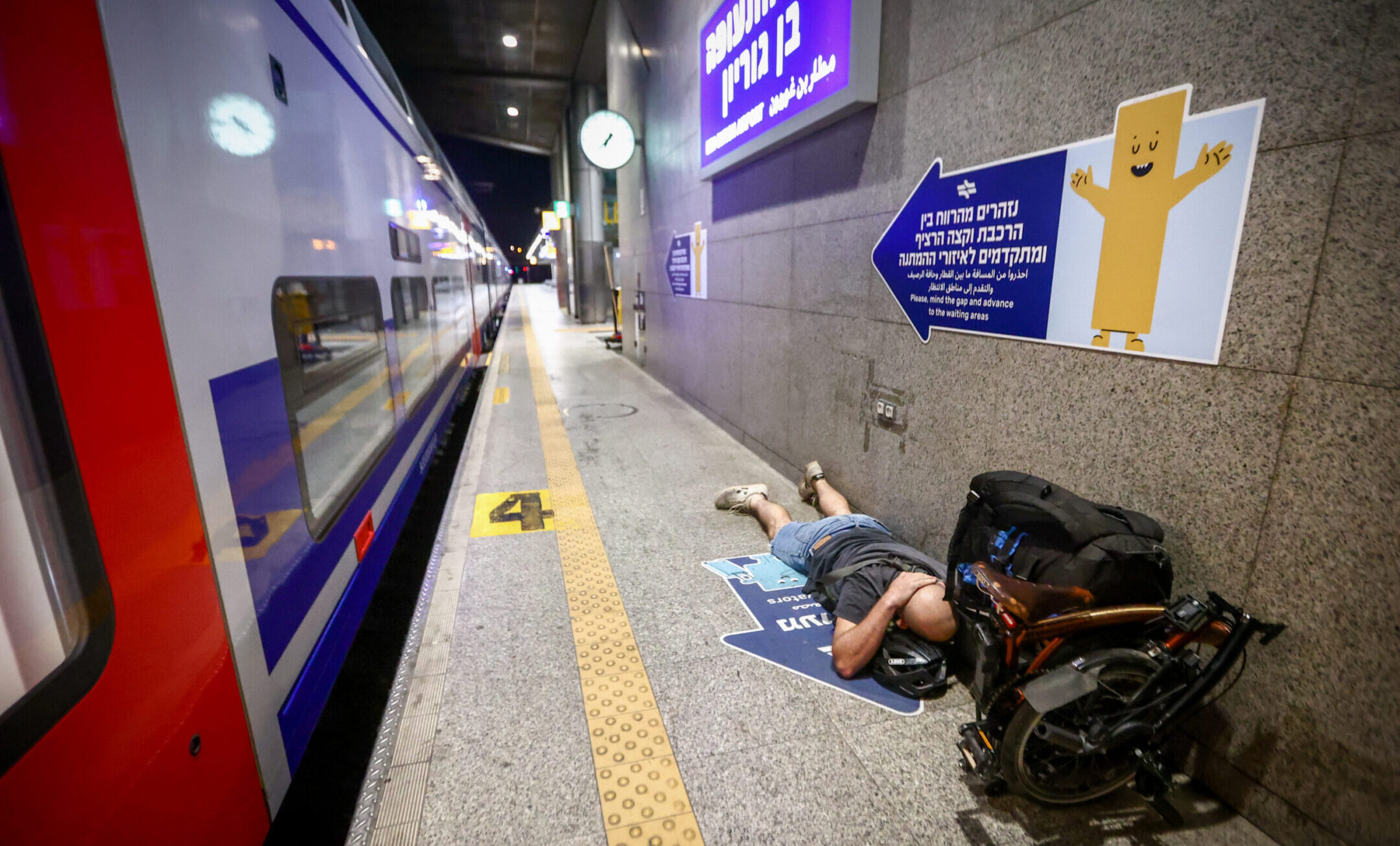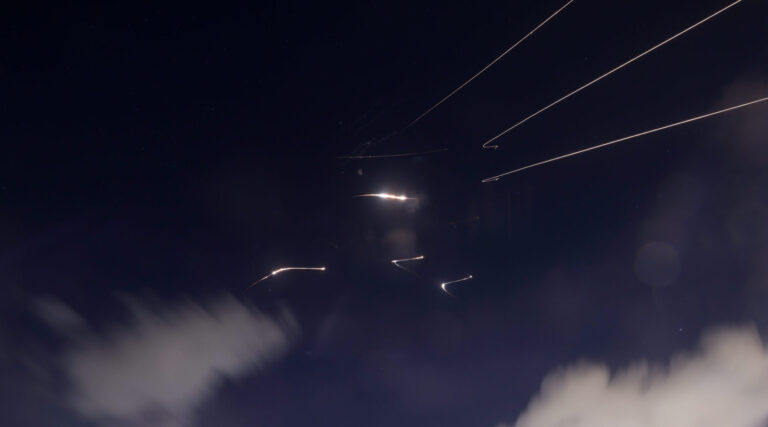WASHINGTON — Sirens blared across much of Israel late Tuesday after Iran fired a barrage of missiles toward the country.
Nearly 200 ballistic missiles were incoming, Israeli officials said, as Israelis raced for their bomb shelters. Explosions could be heard widely, including in Tel Aviv, as Israel’s missile defense system intercepted the incoming ballistics or they landed inside Israeli territory.
Israeli authorities initially reported no major injuries but later said that a Palestinian man in the West Bank had died when he was hit by falling shrapnel. Damage to buildings was reported in several cities.
Iran confirmed the missile barrage after its launch and said it would send more if Israel retaliated. Israel said it planned to respond to the attack militarily but did not disclose the timing and nature of the planned response.
The barrage came soon after Israeli officials and the Biden administration warned that Iran was getting ready to directly attack Israel, following the launch of Israel’s broad offensive against Hezbollah in Lebanon. Hezbollah is Iran’s largest proxy.
Israeli officials said they expected the attack to be “widespread” and said the country’s highest defenses had been activated. The Biden administration said that it stood ready to assist Israel.
“The United States has indications that Iran is preparing to imminently launch a ballistic missile attack against Israel,” a senior White House official said Tuesday by email, before the attack began. “We are actively supporting defensive preparations to defend Israel against this attack. A direct military attack from Iran against Israel will carry severe consequences for Iran.”

Israelis take cover inside a bomb shelter at the Ben Gurion airport as a siren alert is sounded, Oct. 1, 2024. (Dor Pazuelo/Flash90)
After the attack ended, Israel Defense Forces spokesman Daniel Hagari said, “We do not perceive any further threats from Iran” and said Israelis could leave their bomb shelters. He added, “There will be consequences for this shooting. We will respond in the right place and time.”
Iran previously barraged Israel with missiles, including ballistic missiles, in April. The United States led a small coalition of nations that came to Israel’s assistance. The combined defense deflected all but one missile in that case, and prevented fatalities. Israel later responded with a relatively small bombing raid on Iran.
Anticipating a response from Iran and its proxies to its offensive in Lebanon, Israel announced protective measures for its citizens until the Rosh Hashanah holiday is over. The two-day holiday begins Wednesday evening.
“Regarding Iran, we are following the threat in a serious way,” Daniel Hagari, the army spokesman, said in a broadcast.
“The incoming fire from Iran is likely to be widespread. You must remain close to a sheltered facility from this moment,” he said. “As soon as you hear the alarm you just enter the secure space and don’t leave until told. The defense is not airtight, I repeat, the defense is not airtight.”
Israel’s Cabinet is meeting for the first time in a bunker since the launch of the war last October, Israel’s government-run Kan broadcaster said.
Among the measures in effect until Oct. 5, Israeli media reported, is a request for Israelis to keep gatherings small — up to 30 people in open spaces and 300 in closed spaces — and to stay within 90 seconds of a bomb shelter. Beaches were closed. Mass pre-Rosh Hashanah selichot, or penitential prayers, planned for Tuesday night at the Western Wall have been canceled.
The US warning came after 10 days of devastation rained on Hezbollah by Israel, including the assassination of the group’s leader, Hassan Nasrallah. On Oct. 8, 2023, Hezbollah joined Hamas in its war against Israel that was launched a day earlier. Israel has eliminated much of Hezbollah’s leadership in addition to Nasrallah. It has taken out operational centers and on Tuesday the army revealed that ground forces, in Israel’s first ground incursion into Lebanon since 2006, destroyed Hezbollah weapons depots and tunnel systems. More than 1,000 people in Lebanon have been killed in the strikes.
“The soldiers identified and breached underground access points near the border area, exposed extensive weapon caches, assembly areas for terrorist operative operations, and more,” the army said in a statement.
Hezbollah and its purported prowess acted as a powerful deterrent against any Israeli attempts to undercut Iran’s ambitions in the region or to take out its nuclear weapons program. Iran, seeking to restore the balance of power, has pledged revenge for the killing of Nasrallah and other allied leaders in Hezbollah and Hamas.
Israeli Prime Minister Benjamin Netanyahu pledged Tuesday to achieve enough of a victory in Lebanon to return tens of thousands of Israelis evacuated from their homes along the northern border since the war’s launch a year ago. However, he also urged Israelis to abide by safety precautions when they are announced by the government.
“I ask of you two things,” he said in a broadcast. “First, strictly follow the directives of Home Front Command; it saves lives. Second, stand together. Together we will stand steadfastly in the trying days ahead of us. Together we will stand. Together we will fight and together we will win.”
Support the Jewish Telegraphic Agency
Help ensure Jewish news remains accessible to all. Your donation to the Jewish Telegraphic Agency powers the trusted journalism that has connected Jewish communities worldwide for more than 100 years. With your help, JTA can continue to deliver vital news and insights. Donate today.

